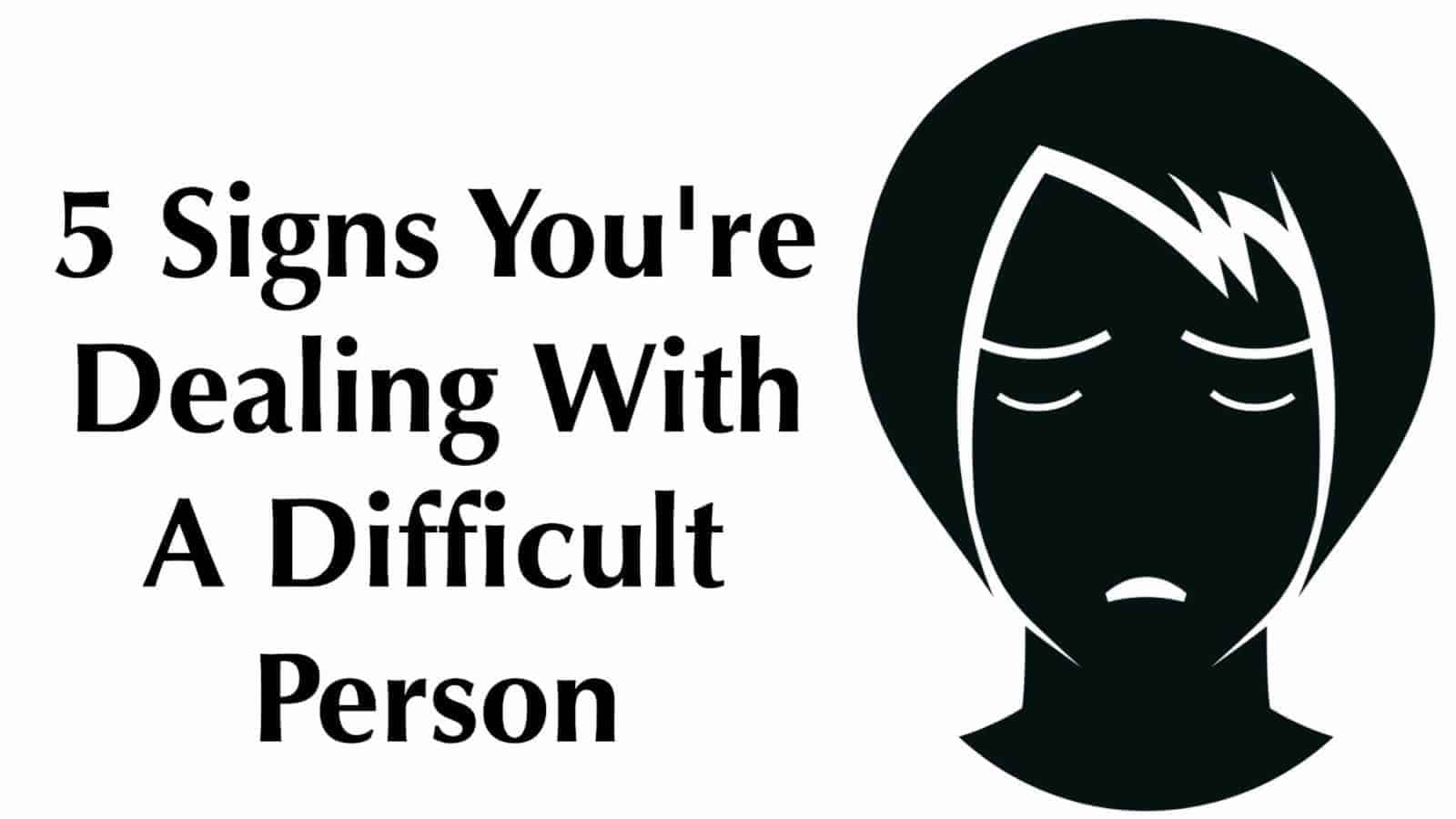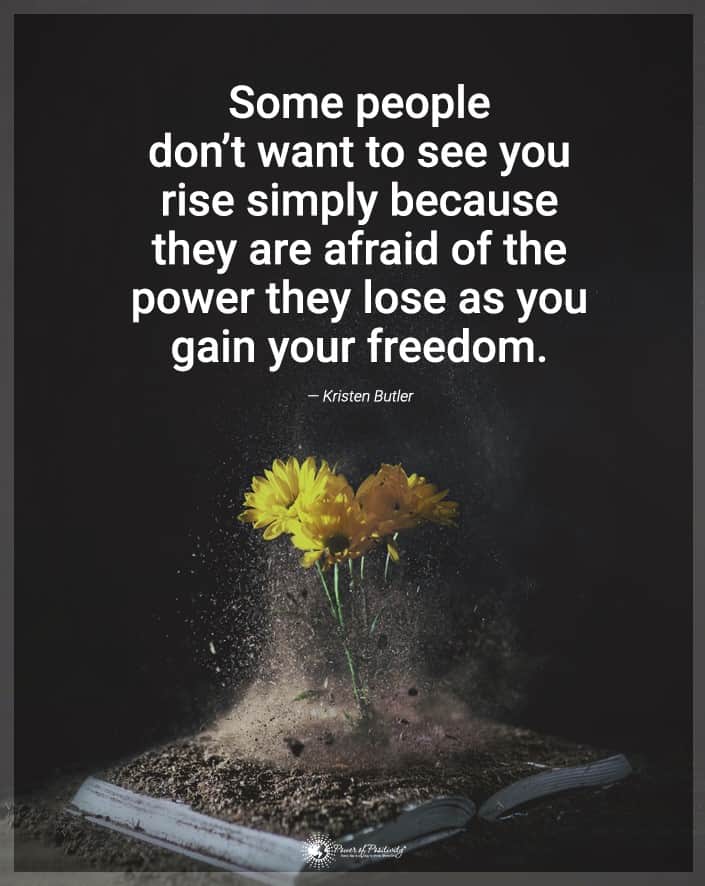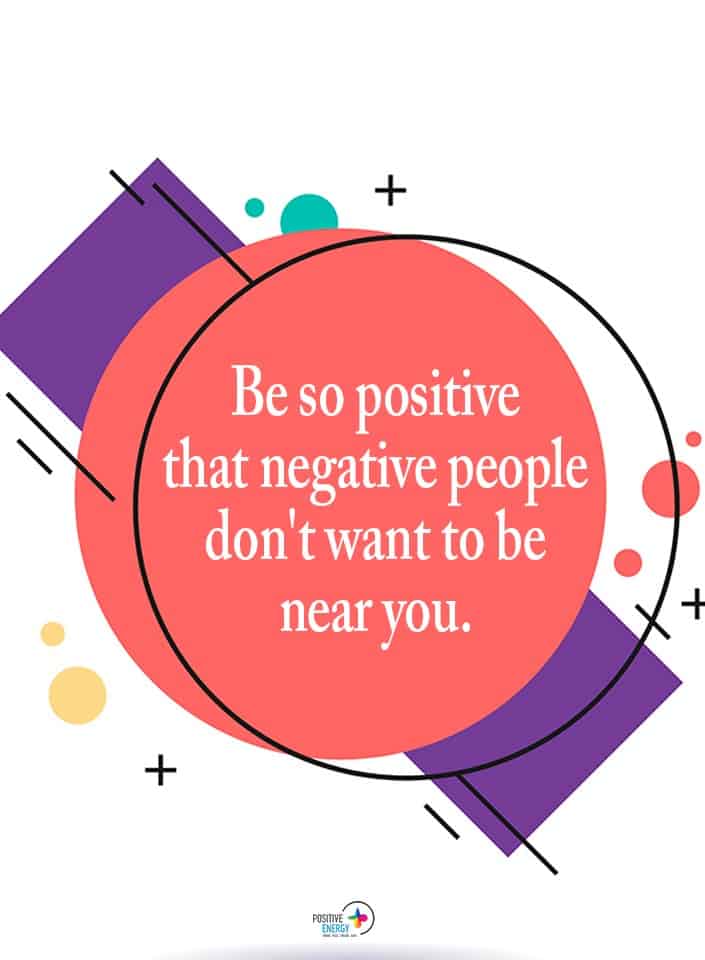People learn behaviors by observing through stimulus and response. They then act accordingly through positive or negative reinforcements. But, how do you deal with a problematic personality when you try to deviate from their attitude, and it still backfires? Difficult people have a way of bringing out the worst in others. Their negativity and behavior are toxic. Sometimes you can feel them before even speaking with them. They act according to their negative reinforcements.
We must all learn (sooner or later!) how to deal with difficult people. “People who irritate us usually have something to show us about ourselves. “Ask yourself: How is this person holding up the mirror to me?” suggests Sandra Crowe, author of Since Strangling Isn’t an Option. For example, being around my chronically late friend reminds me of how quick-tempered and impatient I can be — not my favorite traits. Reminding myself of this may keep me from bouncing off the walls when I find myself waiting for her yet again.”
Difficult people are everywhere in our lives. They come in all colors, shapes, sizes, religions, and nationalities. But, how do you pinpoint the signs that you are dealing with a difficult person when you first meet someone? Sometimes we are sucked right into their pessimism without warning. Or, perhaps we don’t notice the hints.
Here are five signs you are dealing with a difficult person:
Have you seen these red flags?
1. A difficult person makes it all about them.
Difficult people are dramatic, and reactions from others fuel them. They need to be the center of attention. You know this person whose life seems to be a soap opera. You ask her what she did during the weekend, and she moves through elaborate storylines. These folks don’t just tell a story in a few sentences. They share a novel. And, to even ask them, “How are you doing today?” is opening a can of worms. They are selfish, narcissistic, and full of opinions.
2. They don’t do a favor without collecting.
These people are always scheming about how they can get something for nothing. If you ask them for a favor, realize it will be like selling your soul to the devil. That favor will not go unnoticed. Difficult people are not compassionate–they are self-serving. These folks will remind you over and over what they did for you. Never mind that you have helped them in the past. That’s not in their best interest. They will bully you into repaying whatever support or assistance you got from them.
3. They are victims.
The victim is the one who never gets over a trauma. They’re stuck in the past. They utilize illnesses, family, and events to manipulate them into getting what they want. They live in constant victimization mode. These people will reel you into their lives by making you feel sorry for them. They tell and re-tell stories of pain and failures. Negativity is their means of communication. The best way to stop their behavior is to continue giving positive statements and not buy into their pity party.
4. Difficult people can be oblivious.
Believe it or not, there are people out there who have no idea what’s going on in this reality. They live in a world that only makes sense to them. These people are problematic because they constantly deny what’s going on. They are flaky. They can be intolerable and hard to handle. These are not the people who are dreamers and trailblazers. These are the ones who bring about drama by creating a world that is not understood. They are delusional. It’s hard to have a serious conversation with an oblivious person. You hope they get the notion that the universe doesn’t revolve only around them.
5. Difficult people whine, blame and gossip.
The truth is that a person sharing gossip with you is also telling your business to others. They blame everyone for their mishaps. They’ll whine about the weather, the boss, the traffic, and anything that can bring attention. They complain about everyone. They make up stories, embellishing details to make them seem more attractive. To stop the nonsense, you have to express your disgust about their behavior.
Difficult people don’t like when the tables turn, and they are no longer in charge of stories. When they don’t get what they want from you, they move on to someone else. They don’t appreciate being called out about their negativity.These folks can’t find a speck of sunshine on a cloudy day. They move through manipulation, control, and bratty behavior. You start to see their signs the minute they show zero empathy for another. You can stop the behavior with positive reinforcement and let them know that you will not tolerate their attitude. We must be grateful for those rude and obnoxious souls who show us what we will never become.
Are You the Difficult Person? Here’s How to Change
Let’s face it – we’re all a bit difficult to deal with at times. Our imperfections make us human, so don’t beat yourself up about not being flawless. However, we should always strive to get along with our fellow humans to the best of our ability. Having a problematic personality can make this challenging, but innate characteristics aren’t set in stone. We can change throughout life by making a concerted effort and exercising self-control.
If you’re a difficult person, we have a few pointers below on how to improve. Remember that we’re not calling anyone out here, just advising those who may need it.
1. Listen more than you talk.
How often do you truly listen to people during conversations? You might think you’re listening, but you may not fully hear the other person if your attention wanders. With the advent of technology, many of us have become distracted and not present when we’re with people. However, we owe it to our fellow humans to show compassion and offer a listening ear when they need it.
It isn’t very kind or tactful to scroll on your phone or act like you don’t care about another’s thoughts. Even if you’re a busy person, you can probably spare a few moments to converse with your loved ones. Regarding work-related conversations or encounters with strangers, it’s equally important to practice active listening. We’ve become very disconnected from each other in modern life, but we can heal by putting our guards down and reaching out.
Please realize that we’re all one, and in caring about others, you’re also showing kindness toward yourself. Imagine that you’re talking to yourself in conversations with others, and you’ll begin to grasp this concept.
2. Practice empathy.
Perhaps you find that you care more about yourself than others. Don’t worry; most people fall under this category, and it doesn’t make you an awful person. However, extending this care to others and including fellow humans in your love will make it easier to get along with people. In general, most people enjoy being around others that have compassion and kindness toward them.
Empathy doesn’t come naturally to everyone, but you can always learn how to care about other beings. Volunteering at a homeless shelter, making dinner for your family, or giving free hugs to strangers are just a few ways to become more empathetic.
Putting yourself in others’ shoes and seeing life from their perspective will help you grow as a person. We all have to share this planet, and it becomes a much better experience if we help each other along our journey.
3. Have realistic expectations of others.
You may have lofty expectations of yourself and others as a problematic person. There’s nothing wrong with setting standards, as long as you allow room for flexibility. No one will live up to these expectations 100% of the time because humans naturally make mistakes.
Also, it isn’t fair to expect so much from people in the modern world where we’re all thin. Keep in mind that people are just doing their best to get by. When they disappoint you, you’ll have greater understanding and compassion toward them. Most people don’t hurt others on purpose; they have a lot on their plate and can’t always attend to your needs.
4. Find fulfillment within yourself.
If you’re a difficult person, you may look to others to feel complete or validate your existence. However, no one can genuinely make you happy unless you’ve found that within yourself first. Disagreements usually occur between people when they have conflicting desires or unrealistic expectations.
Much of this heartache and strife could be avoided if people felt whole on their own. Your relationships will become more fulfilling by not needing anything from others, and you’ll feel more secure.
Practicing meditation, mindfulness, and other reflective techniques will help you remember your true self. Peace, joy, and total consciousness are your natural state, where your desires are finished, and you can rest in the truth.
Becoming more spiritually inclined will reduce the tension and turmoil within yourself to have a clearer picture of the world around you. Polishing the mirror inside your mind will bring profound peace, where all difficulties dissipate.
Find peace within, and you will see it all around as well.
5. Have self-compassion.
Before you can heal your relationship with others, you must face any issues within yourself. Expanding on the point above, the universe acts as a mirror, where we see the world through our lens.
If our lens is cloudy and unclear, we only get a small glimpse of reality based on this narrow-minded view. However, removing unnecessary thoughts and biases will allow us to expand our limited mindset and perceive higher levels of consciousness.
This process starts by forgiving yourself for past mistakes and loving the person you’ve become. Remember that you’re worthy of this gift of acceptance because you’re a child of the universe and deserve to be here like everyone else. The turmoil in modern life stems from our unhealthy relationships with ourselves, so world peace can only happen if we find inner peace first.
Being a problematic person means you haven’t yet accepted yourself as pure love and bliss. When you change how you view yourself, the world won’t seem like a scary place anymore.
Final Thoughts on Coping With a Difficult Person
We will inevitably encounter a problematic person throughout life and might even be one ourselves. Whether it’s you or someone else, you should always have compassion and come from a place of love. Difficult people usually have unhealed trauma or other problems to deal with, taking it out on others.
When you interact with these people, keep in mind that they’re struggling through life just like you. Compassion and empathy will help us heal our relationships with ourselves and others and create a more equitable world.

















 Community
Community

